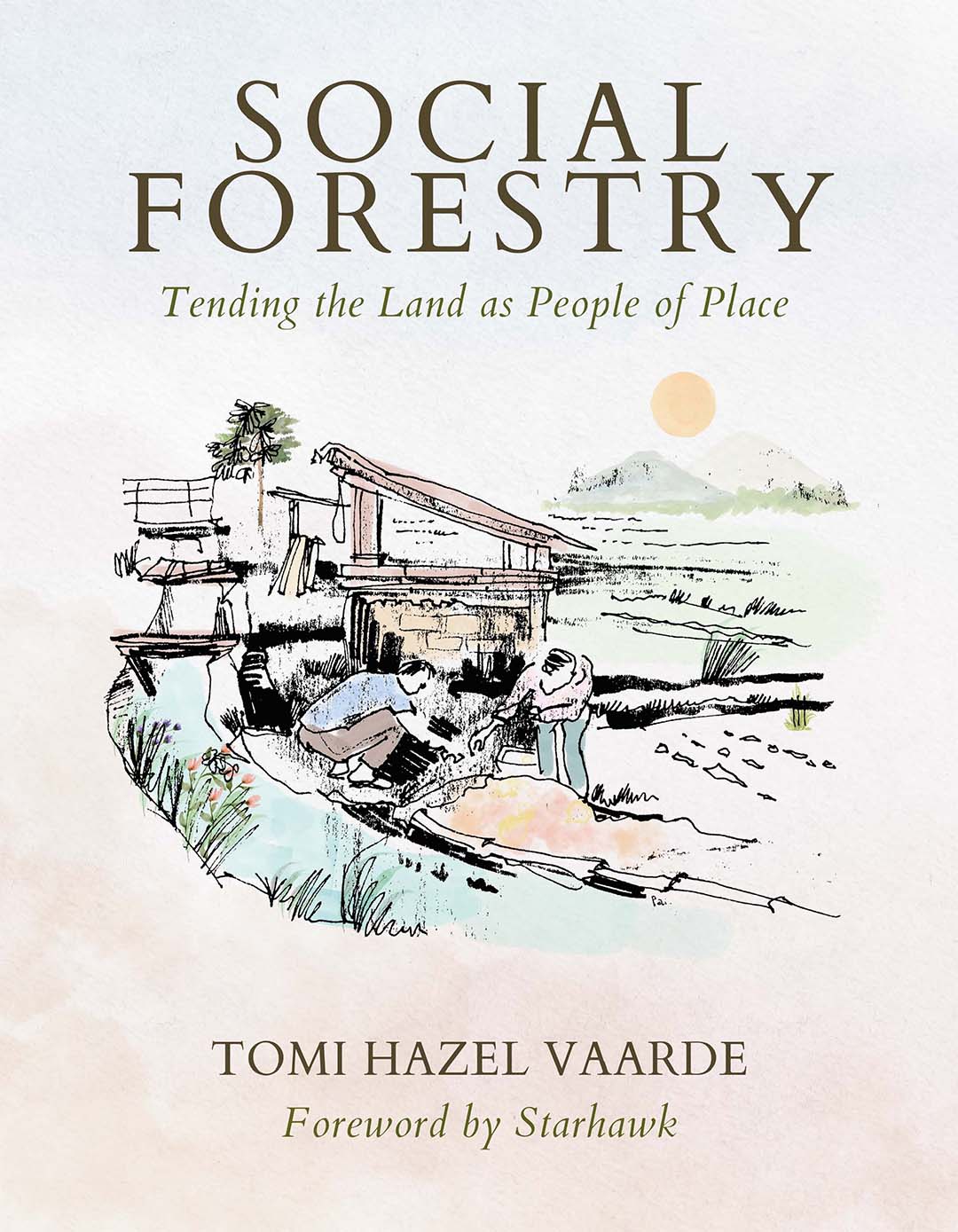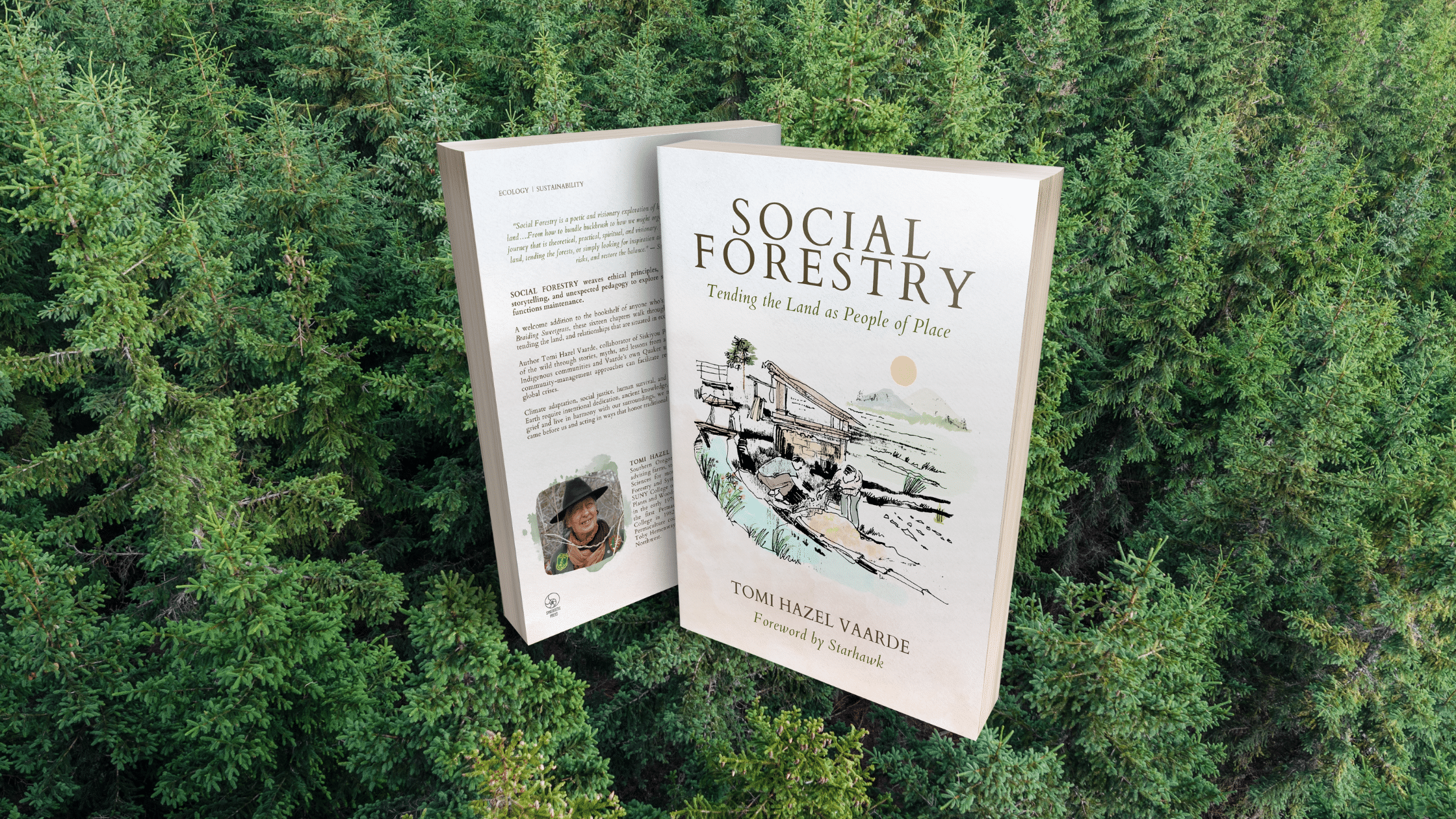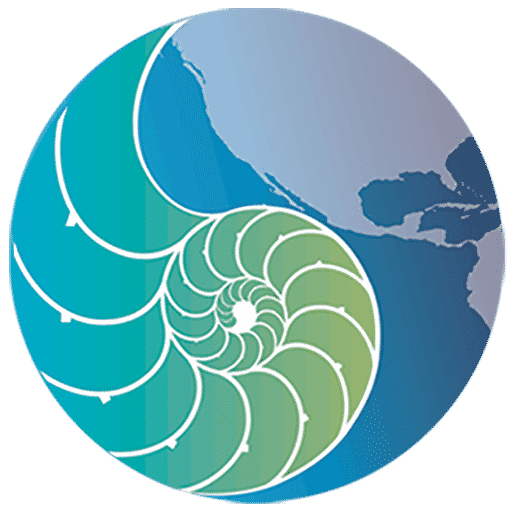“Vaarde delivers a guide to forging reciprocal, regenerative relationships between nature and communities.
The author has been advising farms, stewarding forests, and teaching environmental sciences for more than 50 years since earning degrees in forestry and systematic botany from Syracuse University and SUNY College of Forestry. Vaarde’s book is a collection of data, prose, poems, photographs, drawings, and posters that explain the philosophies of social forestry and land ethics. Forests and bodies of water are often considered as essential only in relation to their benefits to human beings; the author challenges that idea by connecting nature to communities and emphasizing nature’s; forestry work and ecology; cultures of place (shared values, belief systems, or ways of life within a specific geographical region); and visioning (picturing what one wants to happen and how a story might unfold). Vaarde recognizes that reading does not replace action when comes to environmentalism: “This book is not merely a recipe collection, where the reader can pick and choose their indulgences; rather, we want to suggest that all skills and opportunities are embedded in cultural contexts that shape action and involvement in complex ways that a book cannot fully enfold.” The author encourages conservation efforts, forest management, local food production, and the promotion of environmental resiliency, among other practices, and includes myths, anecdotes, and lessons from many North American Indigenous communities’ customs and traditions. The book is brimming with well-researched information on every aspect of social forestry—readers should be warned that a surfeit of data and academic jargon can make it read like a textbook. Despite that, Vaarde does their due diligence to honor the traditional wisdom of communities and help human beings live in harmony with their surroundings. The book is a must-read for anyone curious to learn more about ethical land practices.
Read the original review by Kirkus Reviews here.

Social Forestry connects villages and communities to their land and adjoining bodies of water. Concepts include forest management, protection, and regeneration of deforested lands with the objective of improving the rural, environmental, and social development. Through ecological assessment, carbon sequestration, and generating wildcrafts, people re-establish their wonder in the woods.

